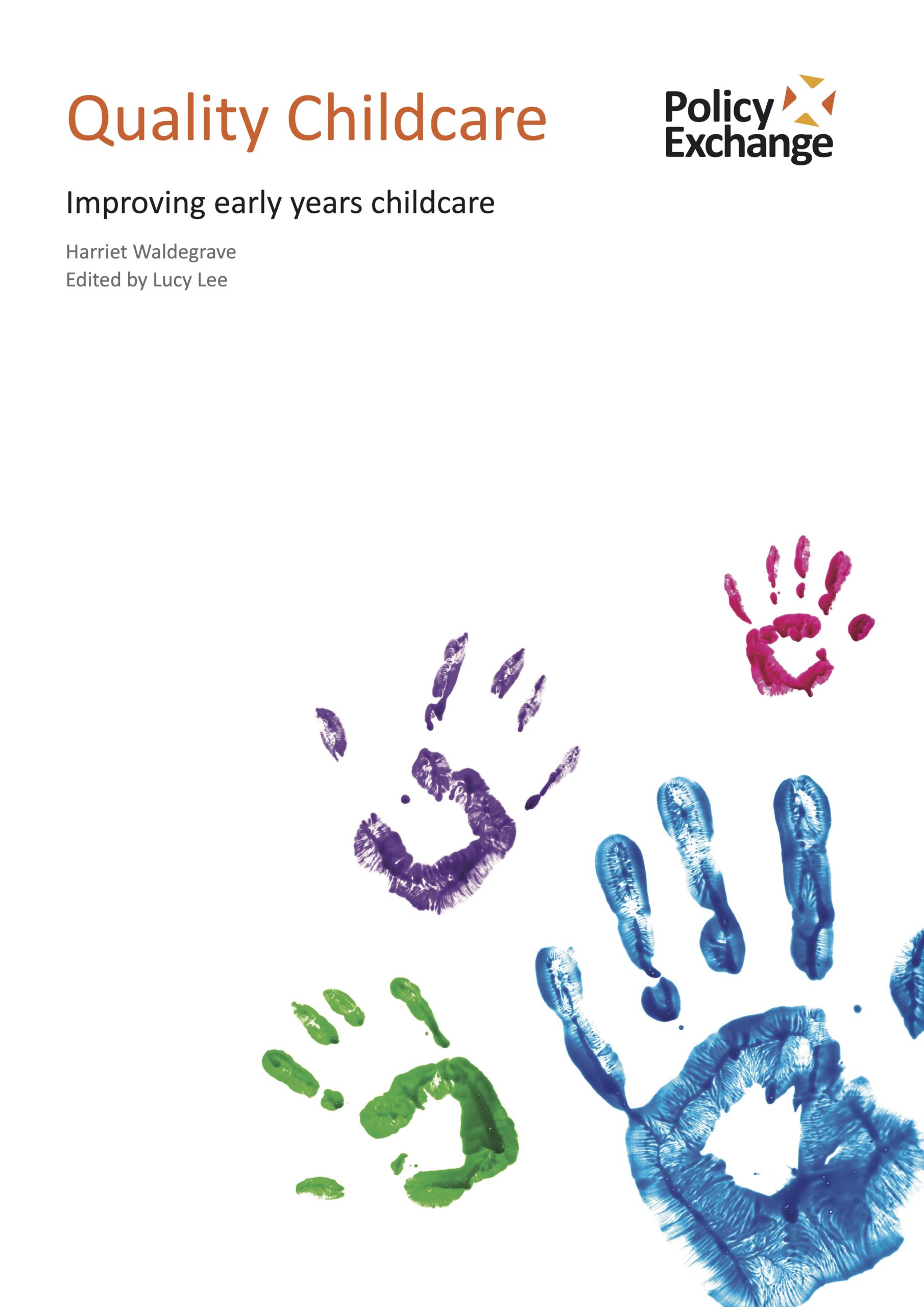
Quality Childcare: Improving early years childcare
People living in the most deprived areas of the country are receiving poorer quality childcare.Quality Childcare shows that over three quarters (79%) of nurseries and childminders were judged ‘good’ or ‘outstanding’ by Ofsted last year compared to only 64% of nurseries and childminders in the most deprived areas of the country. The figures are calculated on a neighbourhood by neighbourhood level.
Ofsted ratings from last year show that the most affluent areas of the country receive almost two times the level of top quality childcare provision compared to the most deprived areas. There are also three times as many outstanding providers when comparing the least and most deprived local authorities in England.
Quality of childcare provision (%) in most affluent local authorities in England:
| Outstanding | Good | Satisfactory | Inadequate | |
| 1. Wokingham | 19 | 64 | 17 | 0 |
| 2. Windsor | 15 | 63 | 22 | 0 |
| 3. Rutland | 12 | 66 | 22 | 0 |
| 4. Richmond | 15 | 72 | 12 | 1 |
| 5. Bracknell Forest | 15 | 69 | 15 | 1 |
Quality of childcare provision (%) in most deprived local authorities in England:
| Outstanding | Good | Satisfactory | Inadequate | |
| 1. Newham | 3 | 52 | 41 | 4 |
| 2. Manchester | 6 | 51 | 41 | 2 |
| 3. Tower Hamlets | 6 | 63 | 29 | 2 |
| 4. Hackney | 6 | 69 | 23 | 2 |
| 5. Liverpool | 7 | 65 | 27 | 1 |
The vocabulary development of the poorest children is 16 months behind those from the highest income families.
YouGov polling of 1,637 people carried out for Policy Exchange also shows that people on lower incomes are less able to choose high quality childcare because of cost constraints. Nearly half of people earning less than £20,000 consider cost an important factor when choosing childcare, compared with 34 per cent of people earning between £40,000 and £60,000.
The report calls for the government to put fresh impetus in improving the quality of early years teaching. It proposes:
- Extending Teach First to early years to attract bright graduates, especially in the most deprived areas of the country.
- Improving the accountability of Local Authority oversight of provision, by ensuring that their inspections and monitoring visits are publicly available.
- Increase the child care element of working tax credits, using savings made from introducing an online childcare account system for all working parents. Error in the current system accounts for £260million every year
Impact
On 10 April 2013, the government announced that they would extend Teach First to include early years educators. This was a recommendation Policy Exchange made on page 41 of the report, as a means of attracting the brightest graduates to early years education in the most disadvantaged areas.
Testimonials
“I congratulate you on your rigorous and informative report on childcare. You make a number of highly pertinent observations, not least in highlighting how much quality varies across the country and especially between richer and poorer areas. You are also absolutely right to stress that making it easier for parents – and mothers in particular – to be able to combine family with work matters enormously – to them as individuals, to families, and to the wider economy.”
Liz Truss MP – Minister for Education and Childcare

